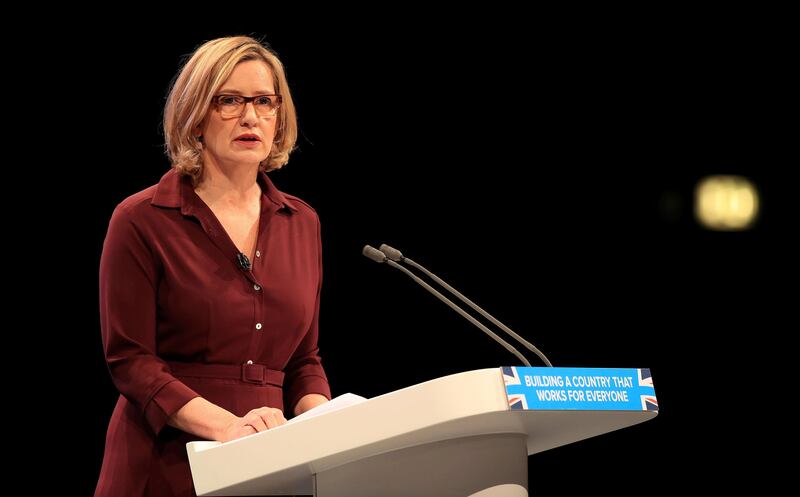The UK plans to introduce longer jail terms for people who repeatedly view terrorist propaganda online.
It is currently illegal to download or store images but the government also plans to make it illegal to repeatedly view footage such as ISIL videos or instructions on how to make bombs.
Interior minister Amber Rudd said the maximum jail term would increase from ten years to 15 for such offences. Fifty-eight people have been convicted for having information that would be useful to terrorist in 15 years from 2002.
The proposals emerged from a review launched after Britain was hit by four attacks by militants that left 36 people dead this year, carried out by radicalised Britons.
________________
Read more:
[ Relaxing in a cafe: the British fighters waging war for ISIL ]
[ Head of controversial UK Muslim advocacy group convicted over counter-terrorism search ]
________________
They included a suicide bombing at a Manchester concert venue, and two attacks on two London bridges by militants who mowed down pedestrians in vehicles before stabbing further victims.
The government has repeatedly criticised Facebook, WhatsApp, YouTube and other social media sites for not doing enough to disrupt or take down extremist content. Senior officials said that they also wanted access to encrypted information.
Ms Rudd said that tougher laws were needed because of a “shift toward crude attacks” with attacks being planned more quickly.
"We must require the industry to move faster and more aggressively. They have the resources and there must be greater urgency,” Ms Rudd told the annual conference of the ruling Conservative party.
Critics said the measures warned that the changes could dissuade potential informants from coming forwards because they have been criminalised by the changes.
“This is incredibly dangerous. Journalists, anti-terror campaigns and others may need to view extremist content regularly and frequently,” said Jim Killock, the executive director of Open Rights Group said in a statement.
The government said defence of “reasonable excuse” would still be available to people such as academics and journalists.
Britain's security service has said it needs access to encrypted communications to foil attacks. In the United States, the Federal Bureau of Investigation has pushed for full access to encrypted communications and devices but Congress has so far refused.






